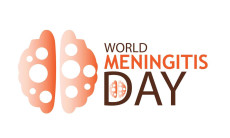- Is the decline in morals a direct result of parenting failures, or should we consider broader societal influences? The answer is likely multifaceted, involving a combination of individual, familial, and societal factors.
Parenting responsibility has seemingly shifted over the years, leading to a decline in societal morals compared to previous generations. In the past, it was common to see a community of adults collectively guiding and correcting children, instilling a sense of accountability and manners.
Today, however, many wonder where these traditional parenting roles have gone, as a perceived lack of humanity and kindness permeates our society.
Several factors contribute to this shift in parenting dynamics. Modern parents face unprecedented levels of stress stemming from financial pressures and the challenges of work-life balance, often hindering their ability to engage effectively with their children and leading to a reactive rather than proactive parenting style.
Additionally, the rise of smartphones and social media has transformed family interactions; screens frequently take precedence over face-to-face communication, diminishing quality time between parents and children and weakening connections that are vital for moral development.
Changing family structures also play a role, as high rates of divorce and the prevalence of single-parent households disrupt traditional dynamics and limit the support systems that historically helped instill positive values.
Read More
Furthermore, some argue that there has been a decline in traditional values, resulting in confusion among children regarding acceptable conduct and the importance of respect and kindness. Economic barriers can exacerbate these issues, as financial constraints often limit access to quality education, healthcare, and extracurricular activities, all crucial for holistic child development.
The disconnection from educational systems also contributes to the problem; changes in schools can leave parents feeling alienated, hindering effective communication and collaboration that are essential for children’s moral development.
As we reflect on these challenges, a pressing question arises: Are parents today adequately taking on the responsibility of teaching their children manners and morals? In an era often characterized by the "Gen Z" mentality—where some youth claim a reluctance to heed advice—issues such as increased sexual immorality, drug abuse, and crime raise alarms.
Is the decline in morals a direct result of parenting failures, or should we consider broader societal influences? The answer is likely multifaceted, involving a combination of individual, familial, and societal factors.





-1759480422-md.jpg)





-1759480422-sm.jpg)
